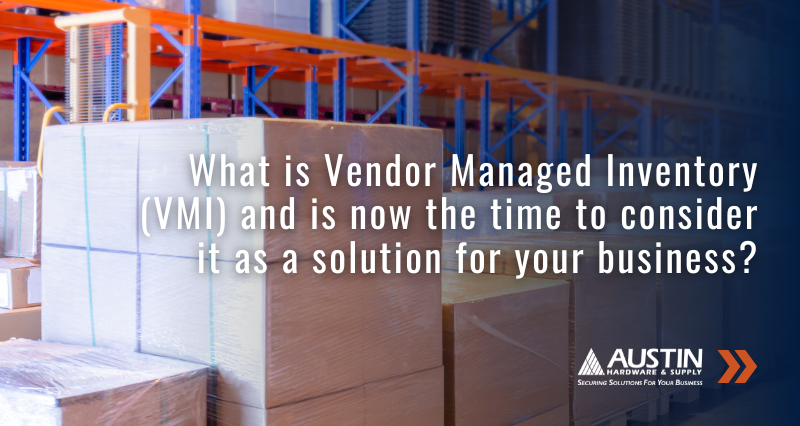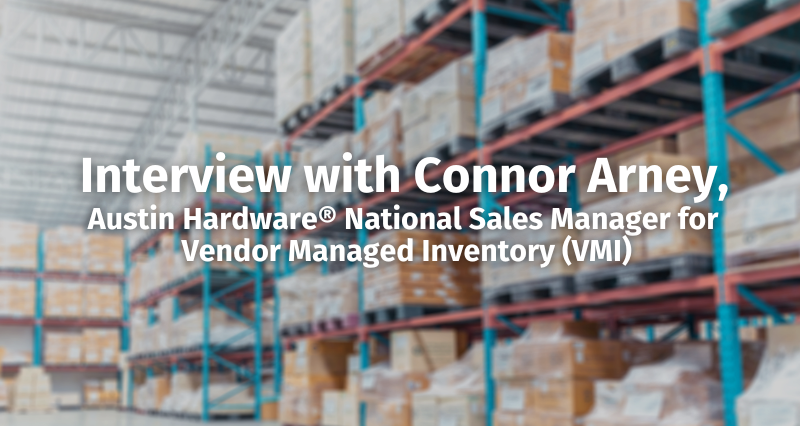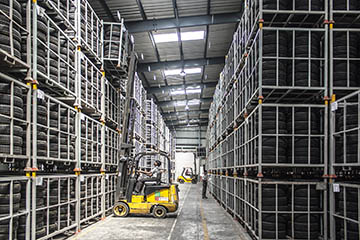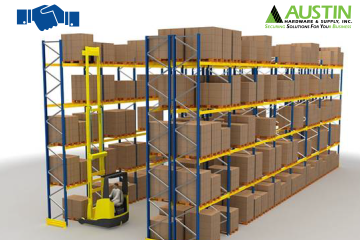What is Vendor Managed Inventory (VMI) and is now the time to consider it as a solution for your business?
Topics: Vendor Managed Inventory, Warehouse Management, inventory management
Interview with Connor Arney, Austin Hardware National Sales Manager for Vendor Managed Inventory (VMI)
Q & A with Connor Arney, Austin Hardware and Supply National Sales Manager for VMI
AH: Can you explain vendor-managed inventory (VMI) and how it works?CA: Vendor-managed inventory is an arrangement between the customer and supplier in which the vendor takes responsibility for managing and replenishing stock levels of agreed-upon parts and products at the customer's customer's location.
Topics: Vendor Managed Inventory, Austin Hardware® News, Warehouse Management, inventory management
Using Data to Build Your Business
Using data to measure your business's success helps you see a clear picture of where your business stands. Numbers don't lie -- you can tell how your business is doing and set goals based on past and present metrics. These Key Performance Indicators (KPIs) help your business stay on track to goals, quotas and let you know where you stand. Austin Hardware® covers this more in-depth here.
Aren't you ready to stop focusing on the small things like purchase orders, supply chain headaches, too many vendors, etc.? It's time to start focusing on what really matters – what new product improvements are needed to drive sales, how vendors can align with you to exceed your corporate or department goals, what manufacturing processes need revisiting. It's time to start building business relationships, setting long-term goals, growing your business, and preparing for future growth.
Austin Hardware's team of experts can help take your business to the next level. If staying on track for your future goals is your concern, keep reading to see how Austin Hardware's use of data analytics and solutions can help your business stay on track this year.
Topics: Vendor Managed Inventory, Warehouse Management, inventory management, Blog
The Importance of KPIs
The use of impartial, dispassionate data to measure business success is critical. It reassures you when you’re doing something correctly, and helps you make adjustments to your plan when needed. These metrics, often referred to as Key Performance Indicators (KPI's) apply to every business and every department, whether evaluating sales, marketing, operations, or purchasing.
In the area of inventory management, dozens of KPI's can be measured depending on the nature of your business. As a Vendor Managed Inventory (VMI) provider, the metrics we value offer insight into both your inventory as well as our performance. We believe measuring the program, and the act of sharing with you this critical data is just as important as keeping stock on your shelves.
Topics: Vendor Managed Inventory, Warehouse Management, inventory management
Inventory Management Software - Why You Need It!
Why Do You Need Inventory Management Software?
Inventory management is a crucial part of your business and having a solid system in place to help you run business is as important as your inventory. If your business depends on inventory you need to be sure that you are running things smoothly. This means preparing for the future, having the correct levels of inventory, monitoring your supply chain and more. If you’re still doing things the old-fashioned way, it might be time to ask yourself: Why? Why deal with uncertainties, unnecessary business challenges, and headaches that ultimately cost you money when there is an easy solution for your business. If you’re using out of date systems like spreadsheets, two-bin systems, and anything else leaving room for error, it’s time to consider new methods for growing your business.
Topics: Vendor Managed Inventory, Warehouse Management, inventory management
While it has been around for over a century, within the industrial supply sector, vending technology has been one of the fastest growing markets in about the last half-decade to help improve inventory management.
Topics: Warehouse Management
The Future of Warehouse Management & Logistics
"Warehouse management and logistics face tremendous challenges due to the consistently growing e-commerce sector. Whereas brick-and-mortar store logistics are subject to general regulations (most notably due to business hours), online retailers experience almost no limits when it comes to time and quantities. This is why warehouse logistics has to be flexible as it pertains to time and the capacity to store a wide range of products. It requires space-saving storage options and most notably adequate manpower to process these orders."
Topics: Warehouse Management















